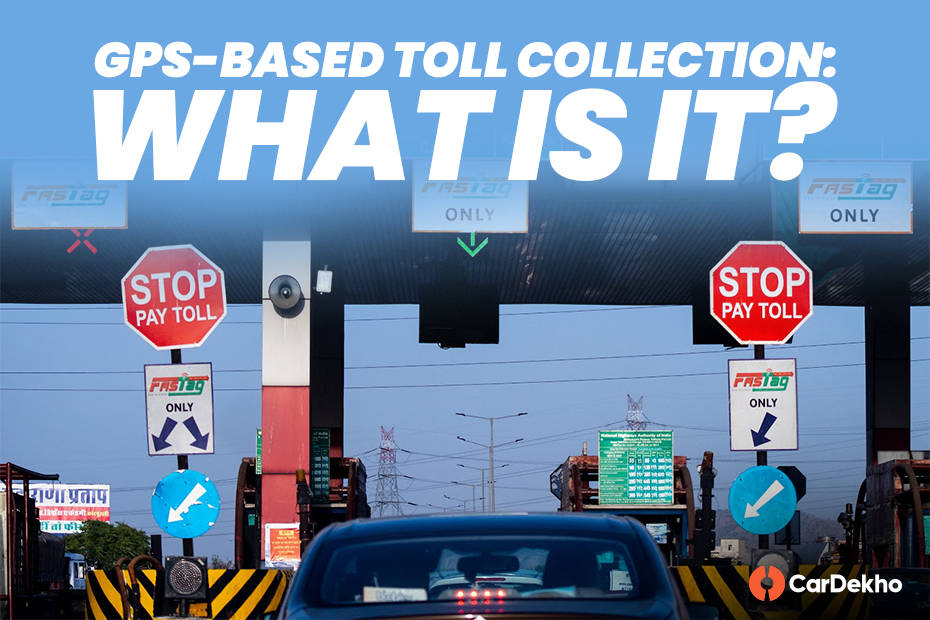Your Vehicle Will Now Be Charged ZERO Toll On National And Express Highways, But Only For A Limited Distance
Modified On Sep 12, 2024 06:05 PM By CarDekho
- Write a comment
The new distance-based toll collection system aims to make toll plazas in our country congestion-free

-
The Ministry of Road Transport and Highways of India announces the amendment for the new GNSS-based toll collection system.
-
This system charges tolls on national highways and expressways on a "Pay as You Use" basis.
-
It also enables toll-free travel for up to 20 kilometres in each direction, once a day.
-
Initially, it will be implemented as a hybrid model with the help of FASTag.
The Indian Ministry of Road Transport and Highways has announced a brand-new GNSS-based toll collection system that charges you based on how far you drive and offers benefits like toll-free travel for up to 20 kilometres. The pilot or testing phase for this new system is complete, and here’s everything you need to know about it.
What Is GNSS Enabled Toll Collection System?

GNSS, or Global Navigation Satellite System, is an electronic toll collection system that uses satellite technology and geographical information system (GIS) software to charge tolls on national highways and expressways. This system also monitors parameters in real-time such as waiting times at toll plazas, lane distribution, and weather conditions affecting traffic.
How Does GNSS Toll Collection System Work?
The GNSS-based toll system collects data such as toll name, location, and distance travelled. This enables a dynamic toll charging system, meaning you will only pay for the distance travelled on a particular highway.

Currently, tolls are charged manually, which means you might be paying for extra kilometres you didn’t even drive. With the GNSS system, the onboard unit tracks how far you’ve gone and charges accordingly.

Also Read: MG Windsor EV's Battery-as-a-Service (BaaS) Rental Program Explained
How the GNSS Toll Collection System Charge Vehicles

Initially, the new system will work alongside FASTag in a hybrid model. Designated lanes at toll plazas will be allocated for vehicles with GNSS units on board. The penalty for non-GNSS-equipped vehicles using GNSS lanes could be twice the amount of toll fees, similar to FASTag system.
When a vehicle passes through, the onboard unit will send signals to process charges, which will be handled by fintech companies, just like with FASTag. The announcement also stated that the GNSS system will offer zero toll fees for vehicles travelling up to 20 kilometres in each direction, once a day. For distances exceeding 20 kilometres on national highways, tolls will be charged for the total distance travelled, including the initial 20 kilometres.

While the government has not set a nationwide implementation date, the new satellite-based toll collection system is expected to be introduced soon.
GNSS Toll Collection System Benefits
Over fast tag, the new satellite-based toll collection system offers benefits such as reduced maintenance costs and increased revenue by lowering toll evasion. Additionally, the system is scalable to accommodate high traffic volumes. It will also enable near non-stop vehicle movement at toll plazas, reducing fuel costs and minimising the need for additional management resources.
Also Read: A Day At The Buddh International Circuit (BIC) Feat. Skoda Slavia Monte Carlo
GNSS Toll Collection System Concerns

The GNSS-based toll collection system also has some limitations. These include issues like signal interference from multipath reflections, which can lead to inaccurate location data. Limited coverage in areas such as tunnels and ghats can result in weak or unavailable signals. Complete dependence on satellite signals may also be problematic during adverse weather conditions. Additionally, there are concerns about the high initial investment and privacy issues, as GNSS tracks vehicle movements.
The government has yet to announce how these issues will be addressed. However, for a smooth transition to the advanced toll collection system, these concerns need to be resolved.
Follow the CarDekho WhatsApp channel to get instant updates from the automotive world.
2 out of 2 found this helpful















